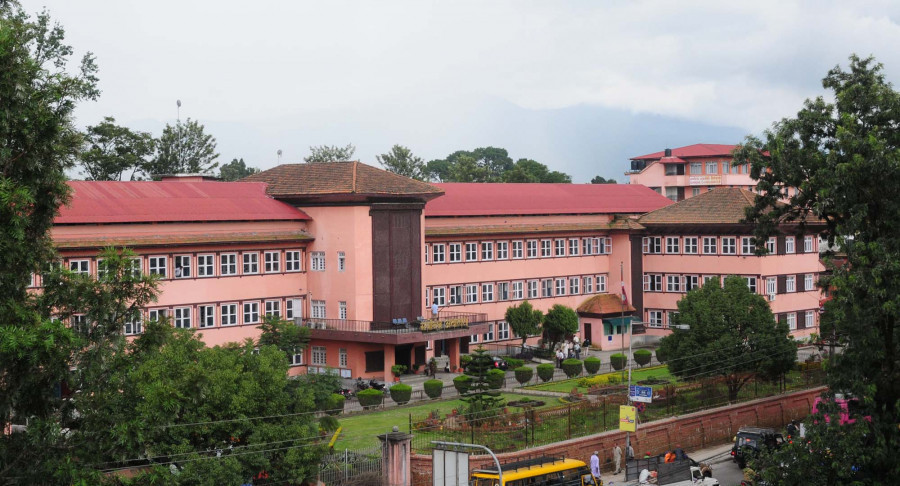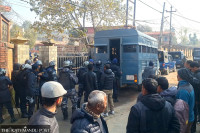Valley
Supreme Court says government cannot restrict anyone from travel
Barring Lenin Bista from visiting Thailand was unconstitutional and against International Covenant on Civil and Political Rights, full text of the verdict says.
Binod Ghimire
The Supreme Court has said it was a breach of the constitutional provision to bar Lenin Bista, a former Maoist child soldier, from travelling to Thailand to participate in a programme in August 2018.
Bista was already issued a boarding pass and had cleared immigration at the Tribhuvan International Airport when he was stopped by immigration officials from proceeding to the gate saying he had not received permission from the concerned authority to participate in the programme.
A full text of the verdict issued by the division bench of Justices Anand Mohan Bhattarai and Kumar Regmi said the restriction on Bista is against the fundamental rights enshrined in the constitution and a breach of Article 12 of the International Covenant on Civil and Political Rights, which says everyone has the freedom to leave any country, including his own.
Bista, 27, had moved the Supreme Court saying that the Department of Immigration and Ministry of Home Affairs curtailed his constitutional right to travel freely. The apex court in its verdict said unless one is facing serious charges in the court and the government has issued a ban against his/her travel, one is free to travel to any country of his/her choice following the due process.
“A person [Bista], who had all the documents to travel to Thailand, was barred at the airport from flying. Considering that similar restrictions can repeat in future, it is deemed necessary to issue an order against the government to not bar anyone from travel in the future unless restricted legally,” reads the verdict.
Bista was due to attend a five-day workshop on “Youth in Conflict Areas: Healing and Peace-building through Social Engagement”, organised by the Asian Resource Foundation in Bangkok, when the immigration officials said he was not allowed to leave the country. After he demanded a written reason, the official said he hadn’t received the permission from the authority.
Bista says he was stopped because the government feared he would raise the issue of former child soldiers at the international forum. He has been campaigning for justice for hundreds of former child soldiers who fought against the state on behalf of the Maoists during the decade-long insurgency.
“The Supreme Court verdict ensures that no one is restricted from travel in the future,” Bista told the Post. “This is a significant achievement towards preserving the constitutional rights of citizens.”
Bista joined the Maoists in 2002 when he was hardly 11 years old. He was underground for around four years before the Communist Party of Nepal (Maoist) agreed to give up the arms after signing the Comprehensive Peace Accord in 2006. Bista was then living in the Maoist cantonments, along with thousands of others, waiting for integration into the Nepal Army.
However, during the verification process by the United Nations Mission in Nepal that ended in December 2007, officials concluded that 2,972 Maoist guerillas, including Bista, were minors and therefore were rejected for integration.
Bista, the founding chairperson of the Discharged People’s Liberation Army Struggle Committee, has demanded that the use of child combatants be treated as a war crime. The committee has led a number of protests to demand employment opportunities for the disqualified combatants.
The ongoing transitional justice process does not recognise the issue of hundreds of child soldiers like Bista. In a report submitted to the Human Rights Council for the Universal Periodic Review slated for January next year, conflict victims have demanded legislative and programmatic measures to complete a longstanding task to manage them.




 21.12°C Kathmandu
21.12°C Kathmandu












